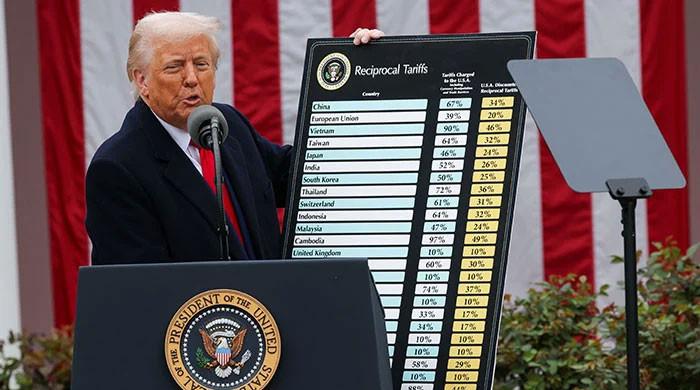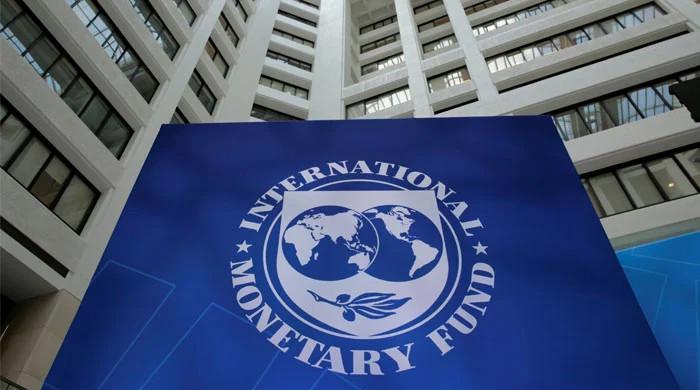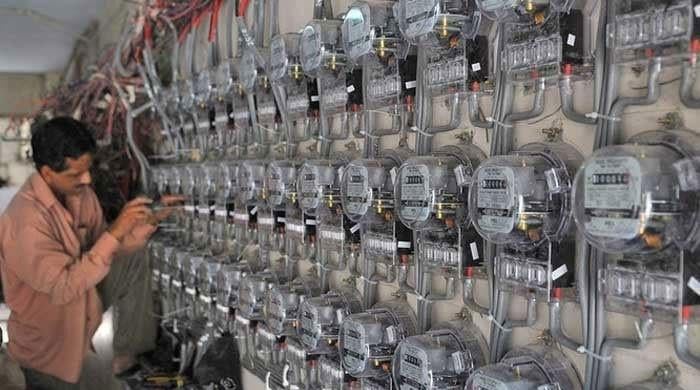Moody's warns of 'highly uncertain' external funding prospects for Pakistan
Agency says Pakistan's newly announced budget for FY24 lacks major revenue-raising or spending-containment measures
June 16, 2023

- Agency says FY24 budget lacks revenue-raising measures.
- Pakistan's future of new programme to become clear after elections.
- "Negotiations for future deal will also take some time," it says.
KARACHI: Moody's Investors Service has warned that Pakistan's ability to secure loans from bilateral and multilateral partners will be severely constrained until a new programme is negotiated with the International Monetary Fund (IMF).
The credit company, in an issuer comment report, said: "Whether Pakistan will join another IMF programme may only become clear after elections, which are due by October 2023. Negotiations for any future IMF programme would also take some time, even if they succeed."
It further warned that Pakistan is unlikely to access market financing at affordable costs, either from Eurobonds or commercial banks, in the foreseeable future.
In fiscal 2023, the government issued no Eurobonds and raised only Rs521 billion ($2.8 billion) from commercial banks, far short of the Rs1.4 trillion target set in the fiscal year 2022-23 budget.
The country's external debt repayment will remain high for the next few years, with about $25 billion of repayments (principal and interest) due in fiscal 2024, while foreign exchange reserves are very low at $3.9 billion as of June 2.
"Pakistan's external funding prospects for fiscal 2024 and later are highly uncertain," Moody's said. "It is not guaranteed that Pakistan will be able to secure $2.4 billion from the IMF as budgeted."
The IMF has been in talks with Pakistan on the ninth tranche of a $6.5 billion bailout package since last year. The programme will expire at the end of June.
Moody's said the government is considering rescheduling bilateral debts, but it does not plan to approach the Paris Club or multilateral partners to reschedule their debt.
"Under our definition, a suspension of debt service obligations only to official creditors is unlikely to have direct rating implications," the rating agency said. "Indeed, such relief would increase the government's available fiscal resources for essential health, social and infrastructure spending."
Moody's said Pakistan's newly announced budget for the fiscal year 2023-24 lacks major revenue-raising or spending-containment measures to alleviate intense government liquidity pressures.
The rating agency said it considers the deficit estimates and growth projections to be optimistic, given the stresses the economy is facing, in particular government liquidity and external vulnerability pressures, exacerbated by the severe floods of August 2022 that will continue to weigh on economic activity over fiscal 2024.
"At the same time, the budget does not contain significant revenue-raising or spending-containment measures," Moody's said.
"The budget provides a wide range of relief measures for households and businesses, including a reduction in fuel and electricity prices, an increase in the minimum wage, and a one-time cash transfer to low-income households."
A large share of the increase in expenditure goes towards salaries and pensions for government employees. Total employee-related expenses are budgeted at Rs1.2 trillion, compared with the estimated spending of Rs960 billion in fiscal 2023.
In addition, the government earmarked Rs2.8 trillion for grants and subsidies in fiscal 2024, compared with an estimated Rs2 trillion in fiscal 2023.
However, Pakistan's low revenue/GDP ratio is a major constraint on the government's debt affordability and debt burden.
The budget targets fiscal 2024 tax revenue at Rs9.2 trillion, up 28% from an estimated Rs7.2 trillion in fiscal 2023.
“Given a lack of new significant revenue-raising measures, the government's revenue projections rely mainly on the assumption that nominal GDP growth will be high and support an increase in revenue. In the current context, we see significant downside risks to that assumption.”











